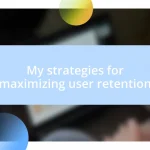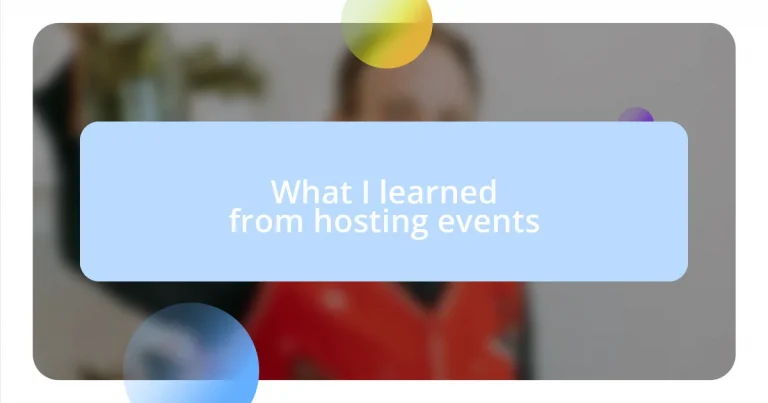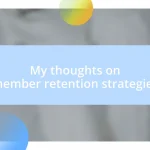Key takeaways:
- Event hosting is about creating meaningful connections and memorable experiences through thoughtful planning and organization.
- Flexibility and adaptability are crucial when unexpected issues arise, as they can lead to unplanned successes and memorable moments.
- Engaging with the audience and building a supportive team fosters a positive atmosphere, enhancing the overall experience for all participants.
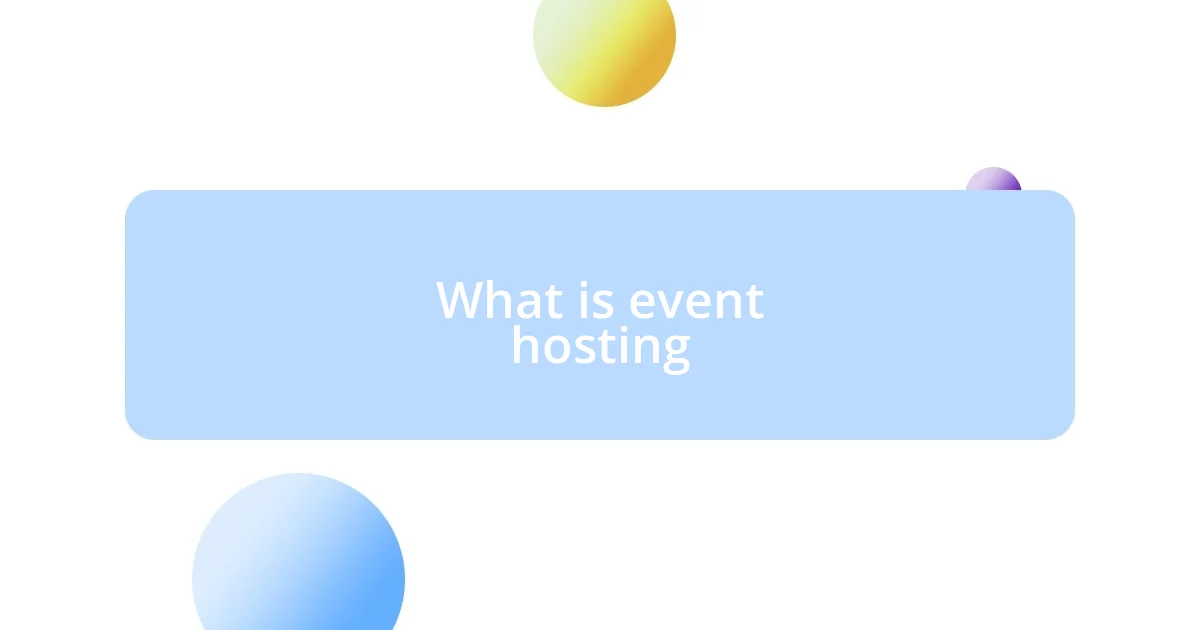
What is event hosting
Event hosting is the art of bringing people together to create memorable experiences. It involves meticulously planning and coordinating all aspects of an event, from logistics to the overall atmosphere. I remember the rush I felt when I hosted my first small gathering; it was exhilarating to see friends interact and enjoy themselves because I played a part in making that happen.
At its core, event hosting is about connection—connecting with guests, vendors, and venues to ensure everything flows seamlessly. Have you ever felt the pressure of making sure every detail aligns? I certainly have! The thrill, however, comes from watching your vision unfold and receiving genuine smiles from attendees. It’s that satisfaction that cements the importance of thoughtful preparation.
Moreover, hosting an event is not just about organization; it’s about creating a space where people feel comfortable and included. When I observed friendships blossom at one of my events, I realized how impactful hosting can be. Isn’t it fascinating how a well-structured event can foster meaningful connections? These moments remind me that every gathering has the potential to spark joy or inspiration, and that is something truly special.
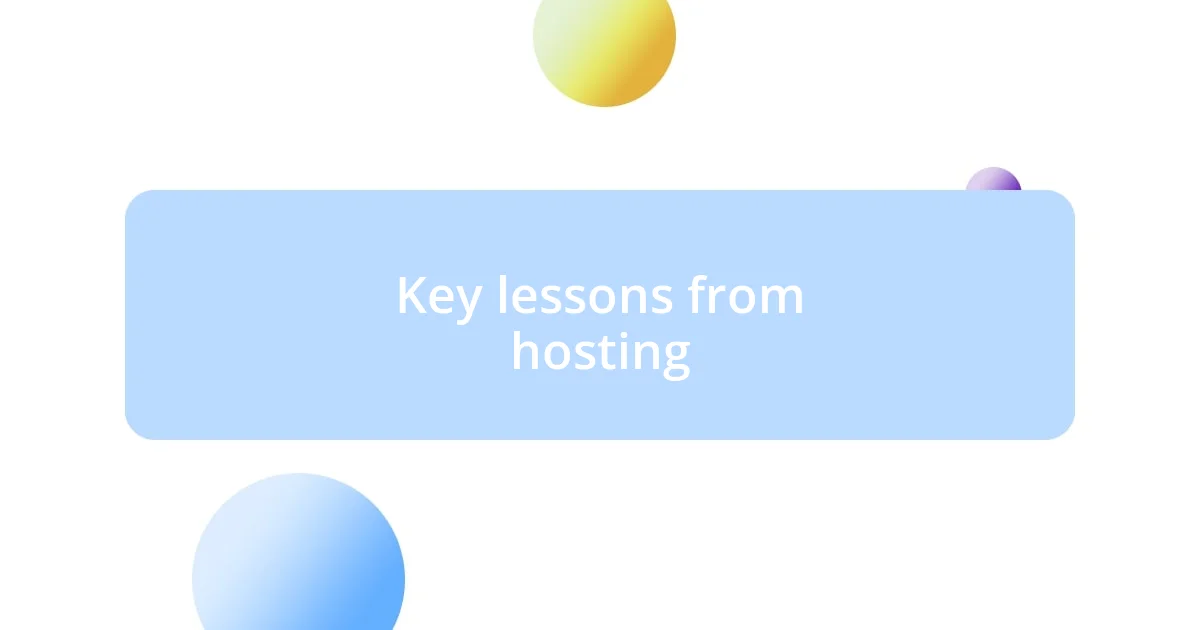
Key lessons from hosting
One of the most significant lessons I learned from hosting is the importance of flexibility. During one of my events, we faced an unexpected issue—weather conditions that forced us to relocate everything last minute. Instead of panicking, I quickly reorganized the setup indoors, and it ended up creating a cozy atmosphere. That experience taught me that adaptability not only prevents disasters but can also lead to unplanned successes.
Here are some key lessons from my hosting experiences:
– Preparation is critical: The more prepared I was, the smoother events tended to go.
– Engage your guests: I’ve found that personal interactions with attendees can elevate their experience significantly.
– Embrace the chaos: The unexpected can turn into the most memorable moments, turning stress into laughter.
– Feedback matters: I always seek feedback from guests to continuously improve my hosting skills.
– Building relationships: The connections I fostered with vendors and attendees often opened doors for future events!
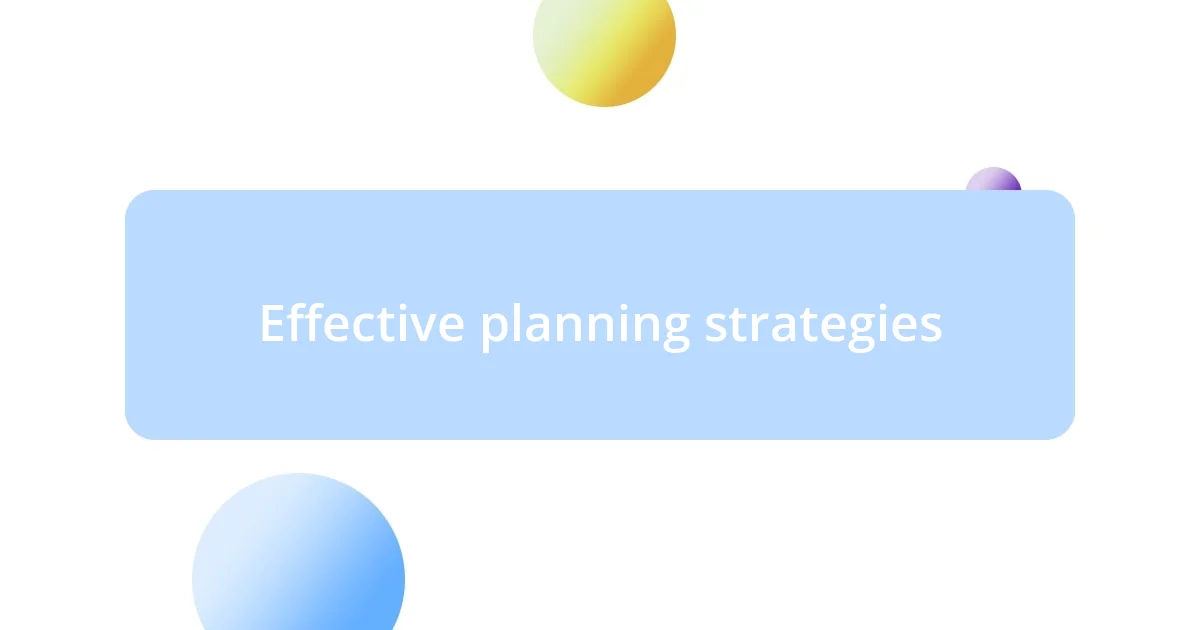
Effective planning strategies
Effective planning strategies are essential for a successful event. From my experience, I learned that creating a detailed checklist is invaluable. I once hosted a community potluck, and I realized I overlooked crucial activities, like setting up a sound system for announcements. A checklist not only helps keep track of tasks but also allows for adjustments if plans change. Have you ever been caught off guard by missing key elements? It can be stressful, but a well-thought-out plan eases that pressure significantly.
Moreover, establishing a timeline is another critical strategy. When I hosted a charity run, I set specific deadlines for each task, ensuring I remained on track. It felt satisfying crossing things off my list, and it maintained a structured flow to my preparations. This approach not only keeps me organized, but it also enables me to allocate time to all tasks, relieving last-minute stressors. Remember, a timeline also allows for delegation, which I’ve found to be essential. Working with a team can lighten the load and foster collaboration, which can be really rewarding.
Finally, always consider your audience when planning. During an art exhibition I hosted, I catered the event to the interests of my guests. I remember choosing artwork that resonated with the local culture, and it was thrilling to see attendees connect with the pieces. Taking the time to understand your audience results in a more engaging experience, and I’ve seen firsthand how it can elevate the joy of the event. After all, it’s all about the connections made during those moments.
| Planning Strategy | Description |
|---|---|
| Checklist | A detailed list of tasks to ensure you don’t miss critical elements. |
| Timeline | Setting deadlines for each task to maintain organization and avoid last-minute chaos. |
| Audience Understanding | Taking time to cater the event to your guests’ interests and preferences for a more engaging experience. |
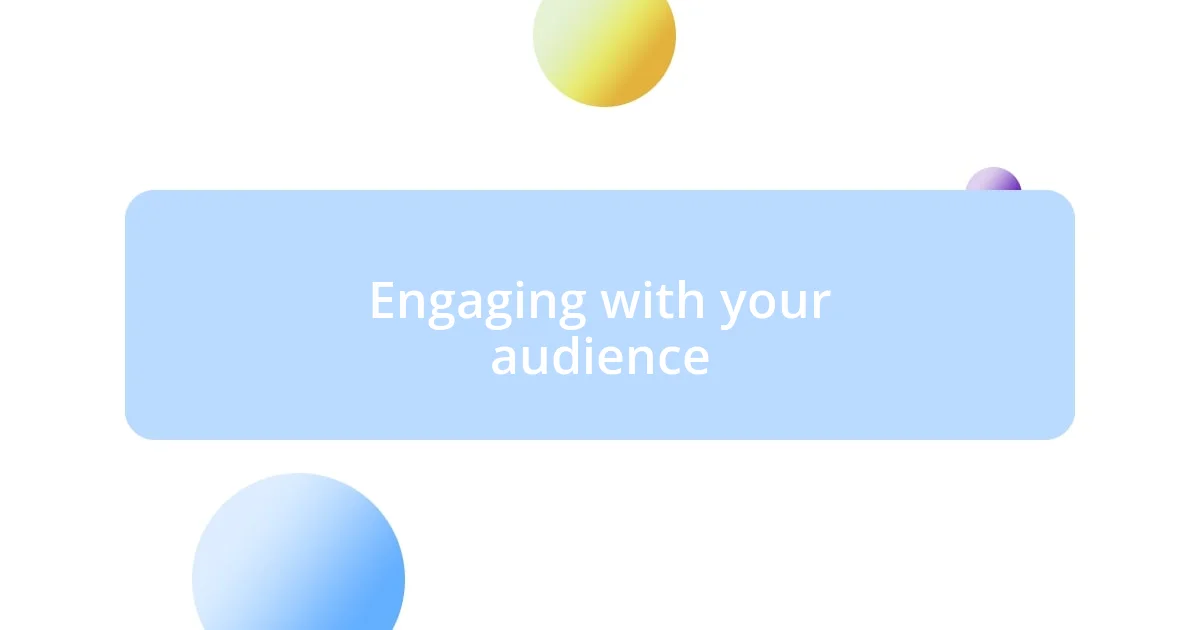
Engaging with your audience
Engaging with your audience is where the magic happens during an event. I remember a networking mixer I hosted where I made it a point to welcome each attendee personally. It was such a simple gesture, yet it created a warm vibe and sparked numerous conversations. Have you ever felt overlooked at an event? I know I have, and I wanted to ensure my guests didn’t feel that way. Building that personal connection made all the difference.
Another impactful strategy I employed was incorporating interactive elements. At a workshop I organized, I encouraged participants to share their thoughts on a whiteboard. Watching them express their ideas and engage with each other was inspiring. I realized then that people love to be heard and to contribute. It transformed the atmosphere completely. What’s your favorite way to get people talking? I find that a little nudge can lead to remarkable discussions.
Lastly, utilizing technology has been a game-changer in maintaining engagement. During a recent virtual event, I used polls and Q&A sessions to keep the audience involved. The instant feedback from the polls was exhilarating and helped tailor the discussion in real-time. It felt almost like a conversation rather than a lecture. How do you keep your attendees engaged? I’ve learned that using the tools at our disposal can enhance the experience and foster a deeper connection with the audience.
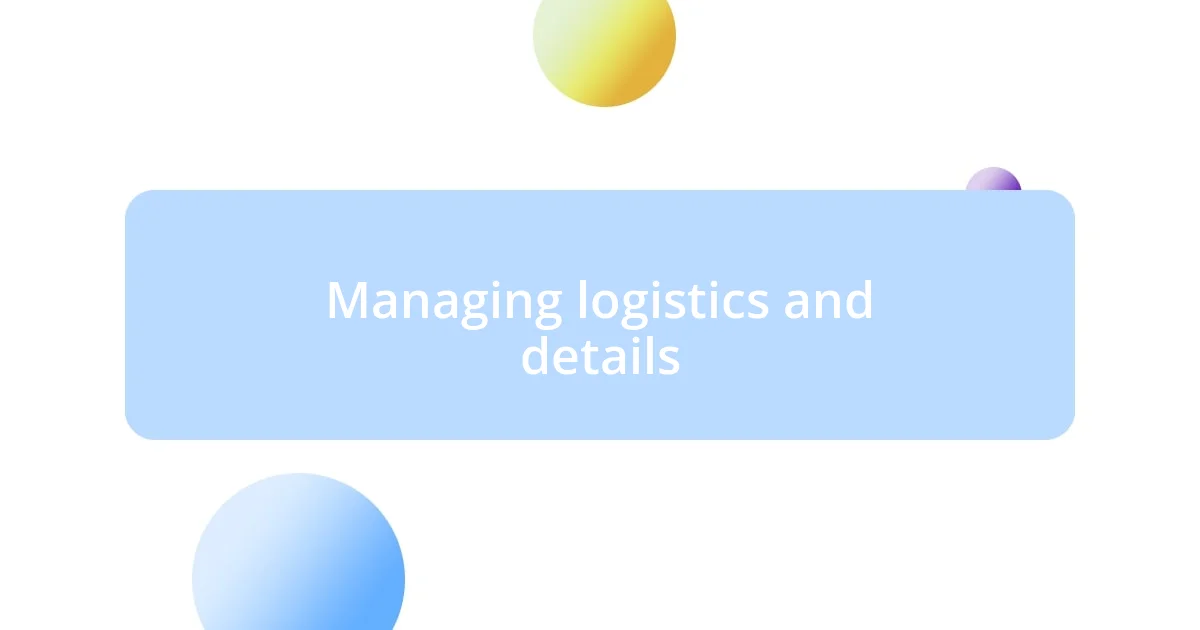
Managing logistics and details
Managing logistics and details is often where the behind-the-scenes magic of an event happens. I’ve had my fair share of unexpected surprises, like the time I was setting up a community fair and realized we had no tables for food vendors. I quickly adapted by coordinating with local businesses to borrow some, which taught me the importance of having backup plans. How often do we underestimate the need for flexibility? Being prepared to pivot can truly save the day.
Communication is another cornerstone of effective logistics management. While coordinating a fundraiser I organized, I made sure everyone on the team was in constant contact through a group chat. It was like having a virtual walkie-talkie, and the instant updates kept everyone aligned. Have you ever tried to manage a project without clear communication? It can feel chaotic, but knowing that my team was on the same page made everything smoother and less stressful.
Additionally, I’ve learned that post-event evaluations are crucial. After hosting an outdoor concert, I sent out a survey to gather feedback from attendees and volunteers. It was eye-opening! Their insights led me to recognize what worked well and what needed improvement. Did you know that hearing from your audience after an event can fuel better planning for the next? I now see evaluations as a valuable tool, fueling the continuous growth of my event-hosting skills.
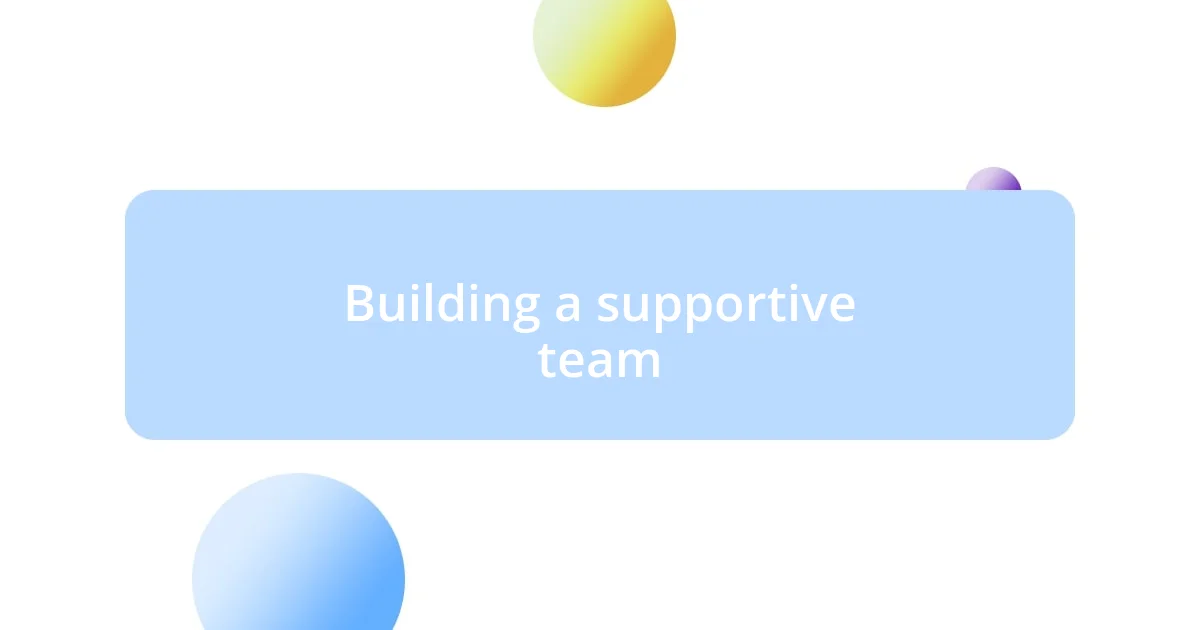
Building a supportive team
Building a supportive team has been crucial in the success of every event I’ve hosted. I recall working on a charity gala where my team came together not just as colleagues but as a close-knit community. Each member had their unique strengths, and we leaned on one another to tackle challenges. Have you ever experienced that synergy where everyone feels empowered? It’s truly magical how collaboration can elevate an event beyond expectations.
During one of my workshops, I learned the importance of fostering an inclusive environment within the team. At first, I noticed a few quieter members hesitated to share their ideas. So, I began implementing regular check-ins, encouraging everyone to voice their thoughts, no matter how small. Watching those quieter individuals blossom and contribute was fulfilling. Why do you think inclusivity is often overlooked in teams? From my perspective, recognizing diverse voices can lead to innovative solutions.
Looking back, I can’t emphasize enough how personal connections within the team made a difference. After a particularly demanding event, we all gathered at a local café to unwind. Sharing stories and laughter helped to strengthen our bond and reminded us of our shared purpose. Isn’t it fascinating how these moments of camaraderie can not only boost morale but also create a supportive atmosphere? In my experience, a team that enjoys each other’s company is one that works well together, even under pressure.
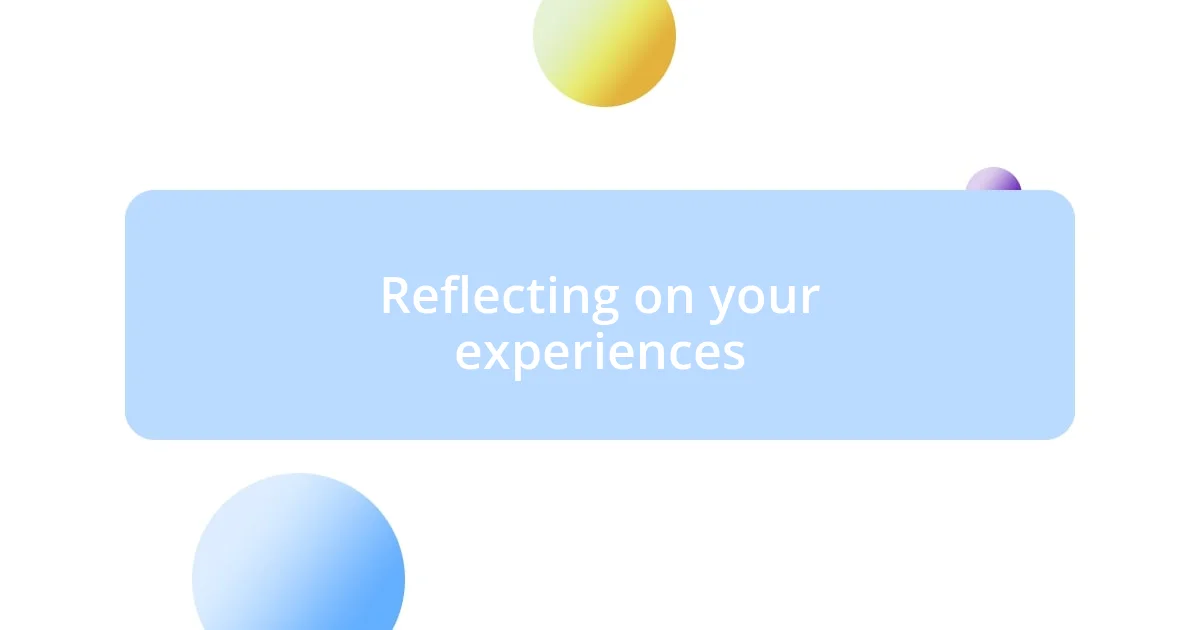
Reflecting on your experiences
Reflecting on my experiences after each event has become invaluable to me. I remember after one particularly challenging festival, I took a quiet moment with a notebook to jot down my thoughts. I was surprised to discover that those seemingly small hiccups—like the sound system faltering—had taught me more than any grand success could have. Why is it we often overlook the lessons in our struggles? For me, it became clear that each setback is an opportunity for growth.
In another instance, I attended a networking event where I felt completely out of place. I realized how easy it is to forget that many others are feeling the same way. This insight shaped how I approach my own events; I now strive to create atmospheres that foster connection rather than intimidation. Have you ever felt like you were just a spectator in a room full of people? I vow to never let anyone else feel that way in my spaces. Reflecting on these emotions has led me to design events that genuinely welcome every participant.
As I think back over my journey in hosting, I’m often reminded of a moment during a small workshop I led. Afterward, a participant approached me and shared how encouraged they felt connecting with others. It dawned on me then—my role isn’t just about logistics or schedules; it’s about creating moments of connection and belonging. What impact do you think a single positive interaction can have? In my experience, those heartfelt exchanges can transform an event from merely functional to truly memorable.







